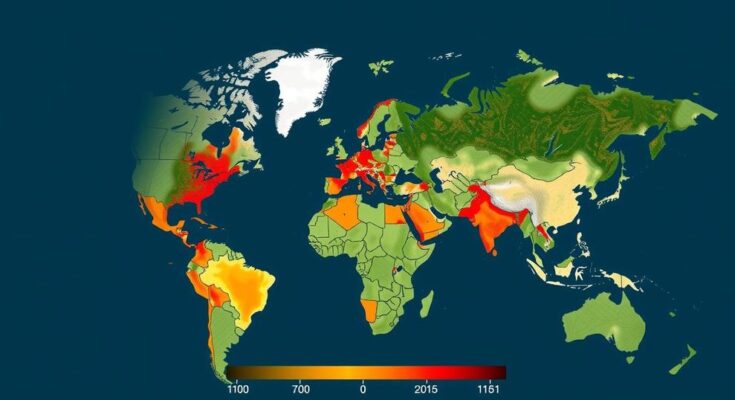A study from ASCOR highlights that no wealthy country is on track for the 1.5°C climate target, with significant deficiencies in climate policies and financing commitments. Investors are calling for more robust government action to mitigate climate risks, amidst increasing scrutiny and potential legal ramifications concerning nations’ climate responsibilities.
A recent analysis by the Assessing Sovereign Climate-related Opportunities and Risks Project (ASCOR) reveals that wealthy nations are falling short in their commitments to combat climate change, with none of the examined countries on track to meet the 1.5°C target set out in international climate agreements. Despite their economic resources, affluent countries show no significant advantage in climate action compared to their less wealthy counterparts. Investors are increasingly concerned, demanding more credible governmental policies on climate and energy to drive sustainable capital flows. Additionally, the study highlights a concerning trend where the legal obligations of nations to their citizens regarding climate-related disasters are being scrutinized, with legal proceedings pending in international courts. Currently, more than 80% of wealthy nations are failing to meet their financial commitments to address climate change, raising questions about their genuine intent and capacity to effect meaningful change.
The impact of climate change is a critical and contemporary issue that mandates international cooperation and action. The Assessing Sovereign Climate-related Opportunities and Risks Project (ASCOR) was established to enhance transparency and accountability concerning how various nations are addressing climate challenges. Given the urgency of this global crisis, investors are increasingly focusing on how effectively different countries, particularly wealthier ones, are implementing their climate commitments. This scrutiny is vital as the global economy faces threats from climate risks, necessitating robust national policies to mitigate such risks effectively and equitably.
In summary, the findings from ASCOR’s analysis indicate that wealthy countries are not adequately fulfilling their climate responsibilities, posing risks not only to their citizens but also to global climate initiatives. With none of the nations studied on course to achieve the critical 1.5°C target and a significant majority falling short of financial commitments, the urgent need for effective and transparent climate action is paramount. Investor confidence hinges on credible climate policies, thus highlighting the necessity for substantial governmental reforms in acknowledged wealthy nations to pave the way toward a sustainable future.
Original Source: www.bnnbloomberg.ca




